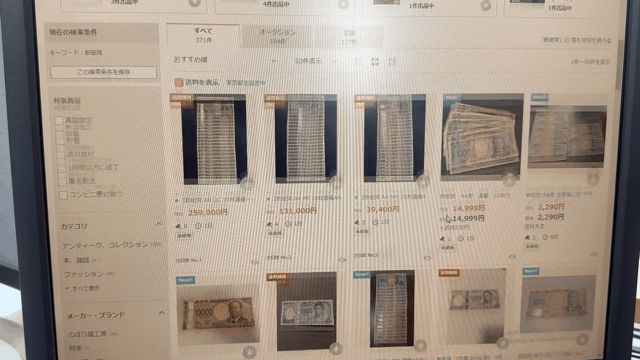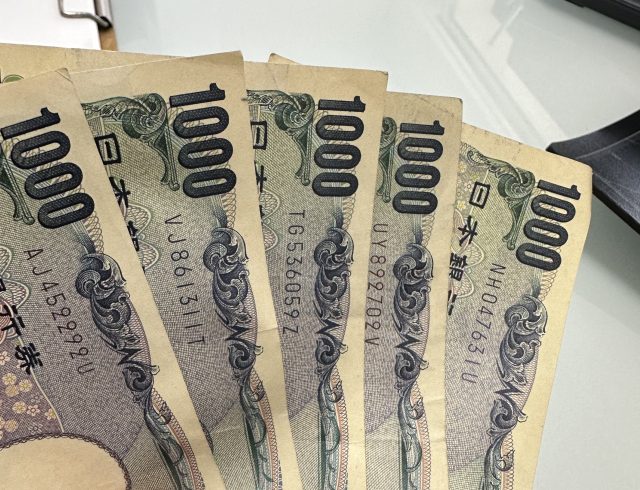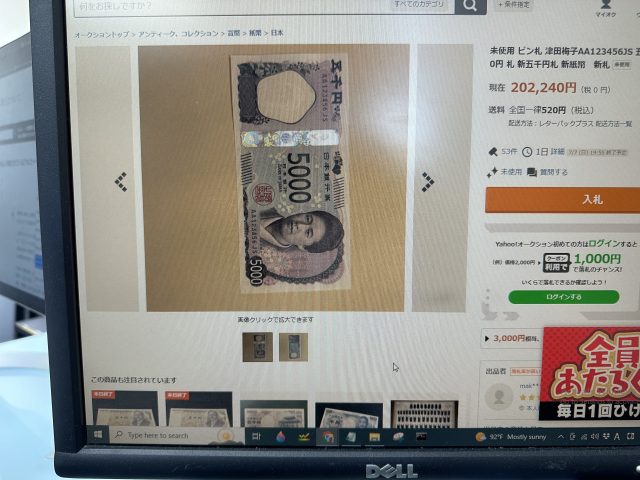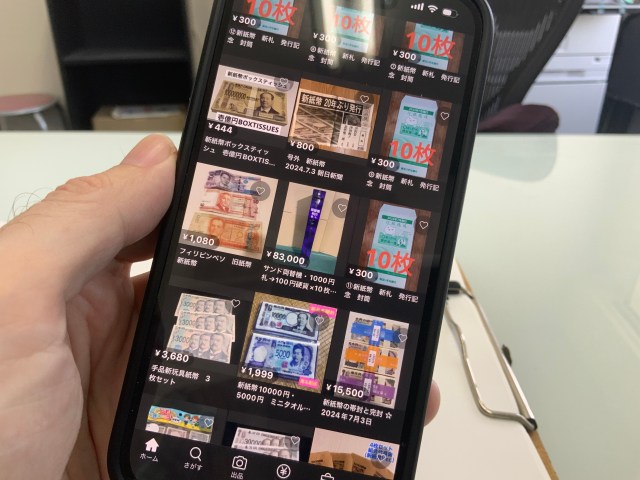New Japanese banknotes selling online for up to 40 times original value

It’s a good time to get some great deals on… money.
Japan has a rich culture of online selling and you can find all kinds of things at Internet flea markets and auction websites from curses to vintage air. Currently, a unique item up for bids and sale is making waves online: Cold hard cash!

The above gif is a look at the Yahoo Auction Japan website with a wide array of brand-new banknotes for sale. They are the new styles of notes which went into circulation a few days ago and are causing all kinds of problems with vending machines and buses. However, with this historic change in bill design, comes historic bills.
Much like banknotes in other countries, Japanese bills have serial numbers on them which tend to begin with two letters, followed by six numbers and one or two letters again. The first two letters are of special importance because they indicate when the bill was printed.
A bill with “AA” at the beginning indicates that it is among the first ones ever printed, “AB” would mark the second run after a million AA bills are printed, and so on until “ZZ” is reached. If a bill is printed throughout this cycle, it starts again with a different color of ink.
▼ In this handful of old-style 1,000-yen bills, the one on the far left has an “AJ” prefix in brown ink, which means it was probably printed around 2011. The ones with blue ink would have been printed after 2019.

Since this new set of banknotes has just come out, it’s the perfect chance to score some mint-condition “AA” bills from the ground floor at the bank. Many people in Japan have been doing just that knowing that even though it’s just regular money now, it has a lot of potential to go up in years to come.
▼ A news report interviewing people rushing to get new banknotes
Just how much they can go up in value depends on a lot of factors and is anyone’s guess, but based on past bills it can be quite a bit. In the video above, hard currency expert Minoru Terada, who crushed our dreams of getting rich with one-yen coins a while back, said a 1,000-yen ($6) bill with a serial number of “777777” is worth 28,000 yen ($174) and one with a serial number of ZZ555555Z, both indicating that it’s in the last batch of its code run and having a unique combination of numbers, goes for 500,000 yen ($3,100).
▼ Yahoo Auction has an older 10,000-yen ($62) note with a “ZZ-Z” serial for 35,000 yen ($217).

Back to the newer bills, on Yahoo Auction, notes with “AA” marks tend to go for relatively modest markups of 50 to 100 percent on average. There are some outliers though, as of this writing a bidding war is currently underway for a 5,000-yen bill ($31) with the code “AA123456JS” with bids having surpassed 200,000 yen ($1,200).

As for compliance with site policies on selling money online, Yahoo Auction has a policy of only allowing currencies with a value as a collectible to be offered and judges each item individually. Major Japanese flea market site Mercari, however, also allows collectible money to be sold but appears to have much stricter screening, because no new bills are being sold there as of this writing.
▼ But if you need some tissue cases or towels that look like the new bills, Mercari has you covered!

So, if you find yourself in possession of one of these new bills and get angry because you can’t buy ramen with it, take a quick look at the serial number before you go to make change at the store and you might end up luckier than you think.
Source: Yahoo Auction Japan, YouTube/FNN, Bank of Japan, Hachima Kiko
Photos ©SoraNews24
● Want to hear about SoraNews24’s latest articles as soon as they’re published? Follow us on Facebook and Twitter!
Credit:

0 comments: